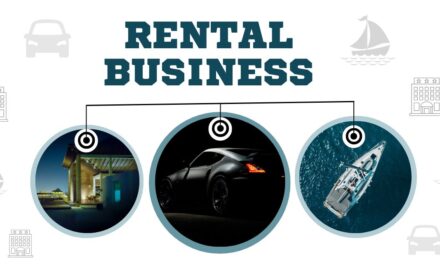In recent times, owning vacation rentals has gained significant popularity due to several reasons. The strong economy and the emergence of the private accommodation industry have made it more accessible for families and travelers to plan their vacations independently.
Every year, a large number of people worldwide opt to take vacations. Whether it’s a short or long trip, finding accommodation is crucial to their planning process.
Vacation rental properties have emerged as a convenient and cost-effective option for travelers, leading many individuals to consider starting their own vacation rental business.
In this blog, let’s explore the nature of this business and a clear outline of the necessary steps on how to start vacation rental business effectively.
Let’s embark on this!
What is Vacation Rental Business?
The vacation rental business is easy to understand. It involves investing in properties that are rented out for short-term stays.
These rentals serve as alternatives to hotels and are popular among travelers because they offer several advantages such as kitchen facilities, increased privacy, and a chance to experience the local area.
Regarding vacation rental properties, there is a wide range of options available. They can include various types of accommodations such as villas, cottages, apartments, condos, and beach houses.
Additionally, these rentals can cater to different budgets, ranging from affordable options to luxurious ones, depending on the location.
Market-Perspective of Vacation Rental Business
In this context, let’s delve into some fascinating statistics about the vacation rental industry that highlight its immense size within the travel sector.
- The projected global revenue in the vacation rentals segment is estimated to reach $96.85 billion in 2023.
- This revenue is anticipated to exhibit an annual growth rate (CAGR) of 2.69% from 2023 to 2027, resulting in a projected market volume of $107.70 billion by 2027.
- The number of users in the vacation rental segment is expected to reach 0.90 billion by 2027.
- User penetration, which refers to the percentage of the population using vacation rentals is predicted to be 10.9% in 2023 and is expected to rise to 11.3% by 2027.
- The average revenue per user (ARPU) is projected to be around $115.50.
- By 2027, approximately 75% of the total revenue in the vacation rentals segment will be generated through online sales.
- In a global comparison, the United States generates the highest revenue, reaching $19,390.00 million in 2023.
Trends in the Vacation Rental Industry
Technology has been a driving force behind the growing demand and success of vacation rentals. Its expansion has flourished to meet the needs of the hospitality industry.
Here are some of the technological trends in the vacation rental industry that charm savvy travelers and create experiences that keep them coming back to your properties and make your vacation rental business rank high:
Online Booking Platforms
The vacation rental industry has witnessed a shift towards online booking platforms that allow travelers to search and book rental properties directly from websites or mobile applications.
Platforms like Airbnb, HomeAway, and Booking.com have gained significant popularity.
Smart Home Automation
Integration of smart home technology in vacation rentals has become a trend.
Property owners are equipping their vacation home rentals with smart locks, thermostats, security systems, and voice assistants to enhance guest experiences and streamline property management.
Channel Management System
To efficiently manage bookings across multiple online platforms, vacation rental owners and property managers are utilizing channel management systems.
These systems allow them to synchronize availability, rates, and reservations across various booking platforms.
Virtual Tours and 3D Visualization
To provide potential guests with immersive experiences, vacation rental listings are increasingly incorporating virtual tours and 3D visualizations.
These technologies allow guests to explore properties remotely and get a realistic sense of the space before booking.
Guest Experience Apps
Some vacation rental providers are developing mobile apps that offer features such as check-in instructions, local recommendations, and direct communication with hosts.
These apps aim to enhance the guest experience and provide convenient access to essential information.
Steps to Start a Vacation Rental Business
Starting a vacation rental business can be an exciting and lucrative venture. Yet, it needs careful planning and execution to succeed in the business.
Here is the outline of the essential steps on how to run a successful vacation rental business on the right track:
1. Create a Business Plan
The first step in the process of how to start vacation rental business is to create a business plan.
Before proceeding with any plans to launch your vacation rental business, it’s essential to create a business plan.
A business plan acts as a roadmap, guiding starting your business. It also serves as a valuable tool for securing funding and garnering support.
A well-crafted business plan should incorporate key details like:
- Your business concept,
- The target market you’ll be operating in,
- The structure of your business, and
- Comprehensive financial information.
2. Explore the Startup Costs of a Vacation Rental Business
The cost to build a vacation rental business can vary depending on several factors. Unlike traditional businesses, a vacation rental business doesn’t require expenses like hiring staff or investing in kitchen and dining equipment.
Instead, you need to budget for maintenance, upkeep, and other similar expenses.
Here are some of the standard costs associated with owning and operating a rental property business:
- Insurance costs
- Property taxes
- Utility costs
- Marketing fees
3. Acquire the Property
The next step in the process of how to start vacation rental business is to choose a location and determine your budget.
The area is crucial for attracting guests and can also impact taxes and fees.
Conducting market analysis is the next important step in how to scale a vacation rental business. Consider the following questions during your research:
- What is the rental cost for similar properties in the area?
- When are the peak tourist seasons?
- Are there any popular attractions or destinations nearby?
- Is there sufficient demand to make your investment worthwhile?
Once you have identified a property that meets your criteria, it’s time to negotiate the purchase.
Keep in mind that finding a property aligned with your long-term goals for the vacation rental business is essential.
4. Consider Financing Options
Once you have calculated your expenses, your next step in the process of how to start vacation rental business is to secure funding for your business.
Whether you plan to purchase a new property or rent out an existing one, there are several financing options available to you.
These include:
- Cash-out refinancing
- Reverse mortgage
- Home equity line of credit
- A business line of credit
- Traditional bank loans
These options can provide the necessary funds to cover your expenses and start your vacation rentals business. Choose the financing method that best suits your needs and financial situation.
5. Furnish Your Vacation Rental Property
When furnishing your rental property, you have many options to cater to your needs, budget, target guests, and personal preferences.
Keep the following factors in mind when choosing furniture for your vacation rental property business:
- Evaluate your current furniture
- Pay attention to the lighting
- Ensure ample storage
- Remove personal items
- Choose durable furniture
By considering these factors and selecting furniture that suits your rental property’s requirements, you can create a comfortable and inviting space that meets the needs of your guests and stand out in vacation rental business.
6. Invest in Vacation Rental Supplies
To provide a comfortable and enjoyable stay for your guests, it’s important to stock your vacation rental property business with essential supplies.
Consider offering the following products to meet their needs:
- Bathroom accessories
- Kitchen supplies
- Bedroom supplies
- Dinnerware
- Drinking glasses
By offering these essential vacation rental supplies, you can make your guest’s stay more convenient and enjoyable, ensuring they have everything they need during their time at your property.
7. Find a Cleaning Service
Whether you’re located near your vacation rental property or far away, it’s crucial to enlist the services of a professional cleaning service to maintain the cleanliness of your property between guests.
Even though most renters will likely leave your property in decent condition, it’s still important to schedule regular cleanings.
Additionally, make sure to wash all towels and bed linens before the arrival of each new guest.
Neglecting housekeeping duties can result in the accumulation of dirt, trash, and potential damage over time. Failing to address these issues can lead to negative reviews and decreased guest satisfaction.
By prioritizing regular cleaning and maintaining a clean environment, you can ensure a pleasant experience for your guests.
8. List Your Property
The final step in how to start vacation rental business is to list your property. When you’re ready to host guests, it’s time to list your rental property.
There are several platforms and methods available to maximize the visibility of your property.
Consider the following listing options:
Vacation Rental Platforms
Utilize popular vacation rental services like Airbnb or VRBO. These platforms enable users to search and filter properties based on their preferences, increasing the chances of your property being seen by potential guests.
Social Media
List your property on social media platforms such as Instagram and Facebook. This cost-effective approach allows you to showcase your property through updates, pictures, and relevant information, reaching a wider audience.
Create a Vacation Rental Website
Establishing your website gives you complete control over how you market your business. With a vacation rental website, you can not only showcase your properties but also offer guests the option to book directly without relying on third-party services.
By leveraging vacation rental platforms, social media, and your website, you can effectively promote your property, attract more guests, and optimize the visibility of your vacation rental business.
Benefits of Starting a Vacation Rental Business
Having a vacation rentals business offers several advantages compared to traditional long-term rentals.
Here are some of the advantages of starting a vacation rental business:
- Higher Potential Revenue – According to AirDNA, the average nightly rate for a short-term rental is around $250, allowing for increased income potential.
- Additional Income Streams – A vacation rental business provides opportunities to offer additional services such as local tours, event hosting, transportation, cleaning, and laundry, which can generate additional income.
- Greater Control Over the Property – With guests rotating frequently, hosts have the flexibility to adjust rental rates based on demand and can perform regular maintenance and upkeep to ensure the property remains in optimal condition.
- Building a Guest Network and Repeat Visitors – Hosting vacation rentals business allows hosts to establish a network of satisfied guests and develop a list of repeat visitors, increasing the likelihood of consistent bookings.
- Tax Advantages – Vacation rental hosts can benefit from various tax write-offs and deductions, including management and leasing fees, maintenance and repairs, utilities and supplies, property taxes and insurance, as well as mortgage interest.
Wrapping Up
Starting a vacation rental business may feel overwhelming for aspiring entrepreneurs. By following the steps outlined above and leveraging the right vacation rental software, you can successfully launch your business in the growing sharing economy.
Your journey in the vacation rental industry is just beginning. By staying updated on the latest industry trends and continuously improving your operations, you can make it a rewarding one.
Best of luck!








